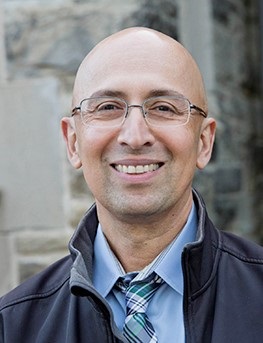 Source: AFMC
Source: AFMC
McGill’s Dr. Armand Aalamian was recently named Chair of the Association of Faculties of Medicine of Canada (AFMC) Postgraduate Medical Education (PGME) Medical Education Committee. Dr. Aalamian, who is the Associate Dean, PGME, at McGill University’s Faculty of Medicine, recently took some time to answer a few questions for the AFMC’s monthly newsletter, sharing his perspective on his new role and on medical education.
You were recently appointed as the chair of the AFMC Postgraduate Medical Education Committee. What excites you about taking on this role?
Medical Education in Canada is currently experiencing a tremendous renaissance. We are in the process of transitioning to Competency Based Medical Education, a framework that is designed to meet the individual learning needs of the residents throughout their training. We have also put in place a brand-new set of Accreditation Standards for Residency Training Programs placing an emphasis on quality improvement and demonstrating that we are able to train highly skilled physicians to serve the needs of the diverse communities within the Canadian landscape. As the chair of the AFMC PGME Education Committee it is my hope to be able to provide the forum of meaningful collaborations between the various stakeholders within Medical Education to address the complex challenges that are before us.
What are some of the challenges facing postgraduate medical education?
There are multiple challenges currently within PG medical education. There are increasing demands on our teachers within the clinical and educational contexts, and as new systems are put in place, there are more stressors on the clinician-educators’ time. There are also additional financial and human resources that are required for the implementation and ongoing support of CBME, a process that can be challenging when several provinces have made significant cuts to their education and health care budgets. There is also a need for functional IT platforms to support the increasingly complex educational systems. There are also decreasing number of residents in several specialties placing added pressure on the work-learning environments.
How will the committee address these challenges?
The committee’s role is to clearly articulate the challenges facing postgraduate medical education and provide the necessary advocacy to address these challenges on a national level. By being in dialogue with all the major stakeholders in medical education, the committee plays a vital role in being the national voice for postgraduate medical education.
Who was your mentor in residency?
Dr. Alice Benjamin, an obstetrician-gynecologist who symbolizes competence, professionalism, compassion, humanity, and humility. She has been an inspirational figure to me for over 30 years.
What one line of advice do you have for residents?
Remember why you chose to practice medicine in the first place, and be compassionate, especially with yourself!
Congratulations Dr. Aalamian!
April 15, 2020
